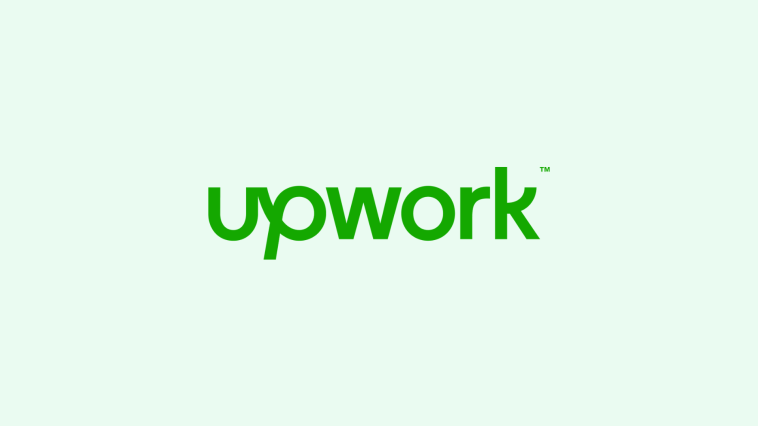Introduction.
A high success rate on Upwork shows clients that you’re dependable, professional, and skilled at what you do. If you can achieve a 100% Job Success Score (JSS), it essentially becomes your “seal of approval” that attracts more and better-paying clients.
Achieving a 100% success rate sounds daunting, but with the right strategies, it’s very possible. The key is to understand what Upwork values, how the Job Success Score works, and how to keep clients happy throughout your projects.
This post will walk you through each step, from setting up a strong profile to managing client relationships and handling feedback.
I’ll cover common challenges you might face and share specific tips on how to keep your score high. Whether you’re just starting out or trying to boost an existing profile, the insights here should help you get to that perfect 100%.
Ready to dive in? Let’s look at how to make Upwork work for you.
Why a High Job Success Score Matters on Upwork
Upwork’s Job Success Score is a central part of its reputation system, showing clients a snapshot of your performance.
When your score is close to 100%, it tells clients that you’re consistent, reliable, and skilled, which is exactly what they’re looking for.
Studies have shown that freelancers with high JSS scores receive more job invites, higher-paying opportunities, and better long-term projects.
Think of it as a domino effect: better projects mean a stronger portfolio, which in turn attracts even more clients.
Without a high score, you might still find work, but it can be tougher to stand out among the countless freelancers with excellent ratings.
Clients are often willing to pay more for freelancers they believe will deliver quality results without hiccups.
How the Job Success Score Works on Upwork
Before jumping into the tips, it’s essential to know how Upwork calculates the Job Success Score. Upwork considers these main factors:
- Client feedback – After each project, clients can rate their experience with you. Positive feedback directly impacts your JSS, while poor ratings can bring it down quickly.
- Repeat clients – If clients come back to you, it’s a good sign that you’re doing something right, and Upwork takes notice.
- Contracts completed successfully – Cancelling contracts, whether initiated by you or the client, can impact your JSS if it happens too often. Projects that end without payment or end early may also affect your score.
- Long-term relationships – Upwork rewards freelancers who build ongoing relationships with clients, as it suggests a stable and trustworthy partnership.
Knowing these factors can help you better manage your Upwork strategy. Now, let’s dive into how to boost and maintain that perfect score.
How Do I Get a 100% Success Rate On Upwork?
1. Set Up a Standout Profile.
Your profile is the first thing clients see, so make it count. Start with a strong headline that describes your niche in simple terms.
For instance, instead of just saying “Writer,” try “Experienced Content Writer for Tech and Health Blogs.” It immediately tells clients what you’re about and why they should consider you.
Next, your profile summary should be specific and focused. Mention relevant skills, experiences, and the kind of work you love doing.
If you have results to back it up (like increased engagement or specific metrics), include those too. Lastly, take advantage of Upwork’s skills section, portfolio, and any available certifications.
Pro Tip: Add a professional photo, preferably one that reflects your personality and warmth. A friendly picture can sometimes make you more approachable and trustworthy in the client’s eyes.
2. Choose the Right Projects
To maintain a high success rate, be selective about the projects you accept. Taking on projects outside your expertise or that seem unmanageable can quickly lead to unhappy clients and poor reviews. Review the job description carefully, ask questions before accepting, and only commit if you’re sure you can deliver the quality expected.
When starting out, it’s okay to go for smaller projects to build your ratings, but make sure they align with your skills. Larger projects can boost your profile fast, but they’re a bigger commitment, so proceed with caution.
3. Communicate Clearly and Often
Good communication is crucial for any client relationship. Before starting, confirm all project details, timelines, and deliverables to ensure everyone’s on the same page.
During the project, keep clients updated regularly, even if there’s not much new to report. A simple message like, “Just a quick update—everything’s on track!” can make a big difference.
If any issues arise, let the client know immediately. Clients appreciate honesty and transparency, and a willingness to address concerns can prevent negative reviews. Plus, clear communication shows that you’re professional and invested in the project’s success.
4. Deliver Quality Work—Every Time
Once you’ve secured the project, focus on quality. This means following the project guidelines, double-checking your work, and making sure you meet or exceed client expectations.
For instance, if you’re delivering a blog post, go beyond just writing it; proofread, polish, and make sure it aligns with the client’s voice and goals.
Take time to review your work for mistakes or inconsistencies before handing it over. If you make the extra effort to deliver polished work, clients are more likely to leave positive feedback, which will help maintain or improve your JSS.
Pro Tip: Ask for feedback on your work during the project. This can help you gauge if you’re on the right track and avoid last-minute revisions or negative reviews.
5. Manage Client Expectations.
Setting and managing expectations is key to a successful client relationship. From the start, be clear about what you can deliver and when.
If you’re working on a tight deadline or facing obstacles, communicate openly. It’s better to let a client know upfront about a delay than to surprise them at the last minute.
If a client requests changes or scope adjustments midway through, handle these politely. You can negotiate additional fees or an adjusted timeline if necessary, but always approach these conversations with empathy and a solution-focused attitude.
6. Request Feedback and End Contracts Positively.
After completing a project, kindly request feedback. While it’s not mandatory for clients to leave a review, positive feedback can boost your score, so it’s worth asking politely.
Something as simple as, “I’d love to hear your thoughts on the project!” can prompt clients to leave a review.
When it comes time to close a contract, don’t hesitate to send a final message thanking the client for the opportunity and inviting them to reach out if they need further assistance. This leaves a positive impression and can even encourage repeat business, which benefits your JSS.
FAQs
Q: How can I recover my Job Success Score if it drops?
If your score drops, try to focus on landing smaller, manageable projects and securing excellent feedback. Consistent positive ratings will gradually bring your score up.
Q: Do unpaid projects affect my score?
Yes, ending contracts without payment can impact your JSS, so it’s best to avoid unpaid projects where possible.
Q: Is it possible to achieve a 100% Job Success Score on Upwork as a new freelancer?
Yes! It’s all about consistently following best practices, delivering quality work, and maintaining good communication with clients.
Conclusion
Getting a 100% success rate on Upwork isn’t just a number—it’s a reflection of strong client relationships, reliable work, and effective communication. With a focused approach and attention to detail, it’s within reach for any dedicated freelancer.
What strategies do you think are essential to achieving a perfect Job Success Score on Upwork?





GIPHY App Key not set. Please check settings